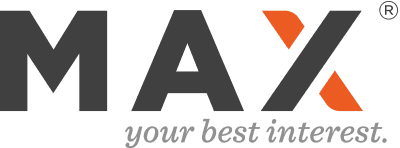
The financial industry is abuzz with a bevy of new cash solutions aimed at individual investors. Each offers benefits versus keeping funds in traditional bank or brokerage accounts. But it’s important to read the fine print – not all solutions are created equal.
Fundamentally, people hold cash for two reasons: safety and liquidity. Safety typically refers to the preservation of value or the use of cash as a hedge against turmoil elsewhere in the portfolio. Liquidity is for paying monthly bills, funding capital calls, or for the option value inherent in being able to invest at a moment’s notice.
The latter is why Warren Buffett loves cash so much. Holding lots of cash on hand enables you to be “greedy while others are fearful” and also provides the psychological cushion necessary to weather the ups and downs of the market. This may explain why, according to Capgemini, the average high net worth household keeps a surprising 23% of its investable assets in cash. In the midst of the financial crisis when everyone else was selling, those fortunate or prescient enough to hold cash were buying – and they profited handsomely. Had you bought the S&P 500 at the market trough, you’d be sitting on a 300% gain right now, a once-in-a-generation event in public equities investing.
If the most important aspects of cash are that it be kept safe (i.e., fully FDIC-insured) and liquid (i.e., immediate accessibility), why are these new cash solutions falling short on both fronts?
The answer is in the fine print.
Behind each of these cash-like offerings is an old system of brokered deposits. Invented nearly 20 years ago, brokered deposits were a simple way for banks to offer customers increased FDIC insurance coverage to prevent customers from opening up additional accounts at competing banks. Unfortunately, brokered deposits don’t offer same-day liquidity, and sometimes cap withdrawals at as little as $100,000 per day. And brokered deposits aren’t always fully FDIC-insured since deposit brokers often place funds at banks where you might already have a bank account, resulting in less-than-full coverage. Investors typically need to read the fine print to figure out where their funds are being placed and then mail in a written letter to request that certain banks be excluded from the brokered deposit program. Hardly a transparent or practical option for most investors.
Brokered deposit systems work by taking your deposits and selling them to other banks. The deposit broker collects a high-interest rate from the recipient banks – circa 2.50% in today’s market – then keeps a spread for itself, perhaps 0.20%, and passes on a net yield of 2.30% to the client. While advertised as “free,” this offering isn’t “free” at all. As a customer, you’re paying 0.20% for this service, and if you read the fine print, you’ll find that you are taxed on the full 2.50%, even though only 2.30% of that will ever see its way through to your account. Need access to your money the same day? You’re out of luck – your funds are locked up by the broker and not available until the next day. Changed your mind and want to withdraw all your money? You may not be able to do that either due to withdrawal limits imposed by the broker. And if the originating institution fails, you could lose access to all of your funds until the FDIC resolution process is complete.
What’s shocking about these recent developments are that some
Investors seeking higher yields on their cash have other options. They can look directly to online banks, or solutions like MaxMyInterest, which helps clients obtain increased FDIC insurance coverage, preferential yields, and same-day liquidity on the cash that sits in their own bank accounts, in a manner that’s fully transparent and free from conflicts of interest.
If you’re sitting on cash, you may be fortunate enough to benefit from the next market dislocation. Before you decide to move that cash in search of a higher yield, I encourage you to do one thing: read the fine print.
Gary E. Zimmerman is the Founder and CEO of MaxMyInterest, an independent, intelligent cash management solution that helps individual investors earn more on their cash, free from conflicts or cross-sell. Visit MaxMyInterest.com or MaxForAdvisors.com for more information.








